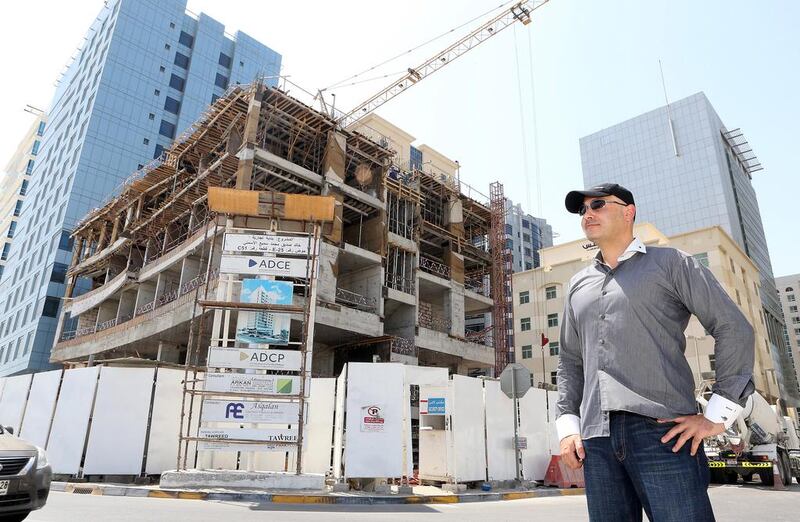ABU DHABI // A parking system that uses robots is about to make its debut in the capital.
US company ParkPlus is installing its Automated Guided Vehicles (AGVs) in a 12-storey residential building being constructed in Al Nahyan Camp, one of Abu Dhabi’s most congested areas.
The robotic car park, which has 110 spaces, is expected to be up and running in the next six months.
“The AGVs are robots used in factories to transport engines and heavy loads without human presence, but we’ve adapted it to the parking world,” said Cyrus Hodes, the managing director at ParkPlus Middle East.
“They have so far built four of the 12 floors,” Mr Hodes said. “We’re doing the automated car park in three levels underground.”
The Urban Planning Council requires all new buildings to have parking integrated into structures.
“The initial plan was to build 42 conventional parking spaces but we managed to bring it up to 110 with the AGV system,” he said.
Once the entire building is completed, ParkPlus can use the AGV system as a showcase for the region.
“We’re so excited to be able to see our system in action,” said Ahmed Alfandi, director at ParkPlus Middle East.
“A first in the UAE and the GCC, it’s going to revolutionise the parking system in the region. It’s already in the US and in Shenzhen, China.”
A driver with a parking spot takes a vehicle into a loading bay, then a guidance system parks the car.
When the driver needs the car again, he or she can request to retrieve it at a kiosk.
The car is scanned and before and after photos are taken to show there is no damage to the car. For security, there is an explosives detection system.
There is also an option to wash and cool the car before it is retrieved.
Unlike other robotic car parks with the "rack and rails" design on steel structures, multiple AGVs or robots work on concrete structures and are safer, Mr Hodes said.
“There’s never, ever going to be an accident because it’s a robot driving which knows to the exact centimetre where the spaces are,” he said. ”You’ve got multiple robots working and if part of a system breaks, the whole system carries on.”
Both Abu Dhabi and Dubai civil defence departments have approved the system. If a fire is detected, the robot immediately comes around the car where the fire is and removes the car to stop the fire from spreading.
Road safety campaigners said there was a need for any system that relieved the pressure on parking spaces.
Thomas Edelmann, founder of Road Safety UAE, said: “From a road safety perspective, we do not see a big difference in the various options of automated robotic systems.
“What we would welcome is a quick and comprehensive solution addressing the need for more parking space in Abu Dhabi, and the authorities are on the right track to tackle this.”
Its effectiveness would largely depend on how quickly parking facilities can be built, how many vehicles they can take off the cramped car parks and at what cost it will be for users, Mr Edelmann said.
“Ultimately, users want to park their vehicles or get them parked comfortably and get them returned comfortably,” he said.
rruiz@thenational.ae






